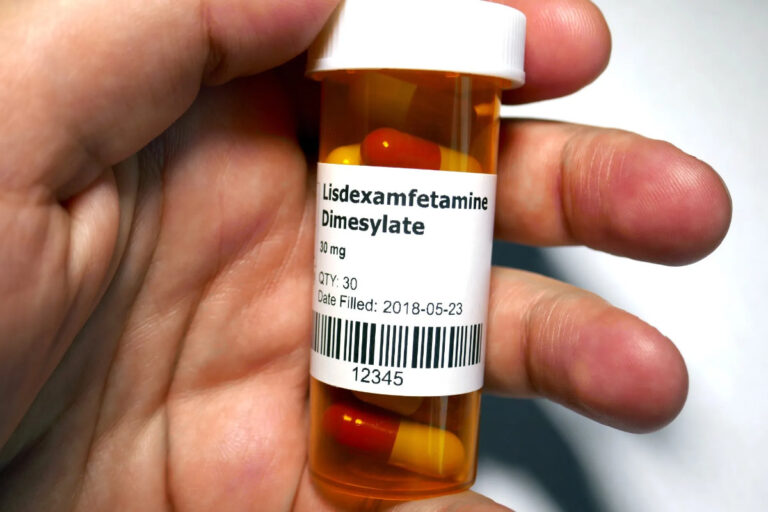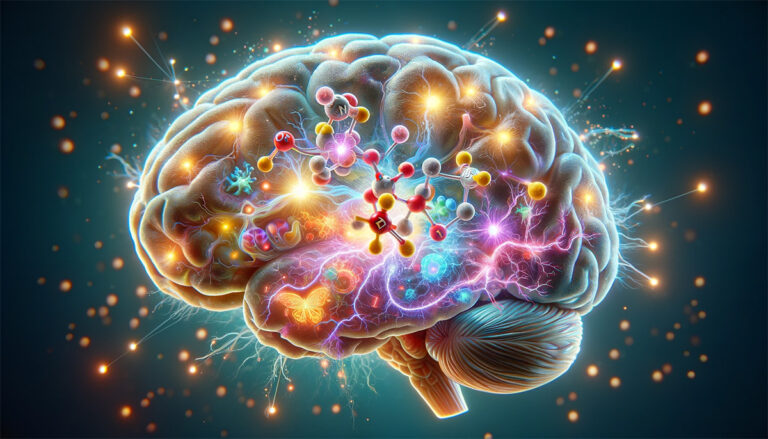Can Modafinil Help Treat Long COVID Symptoms?
Long COVID, formally referred to as post-acute sequelae of SARS-CoV-2 infection (PASC), continues to affect millions across the globe. Persistent fatigue, brain fog, and other neurocognitive issues can linger for months after recovery from the acute illness. With no established treatment, researchers are investigating whether medications like modafinil, which promotes wakefulness, could help ease these symptoms.
Understanding Long COVID
What Is Long COVID?
Long COVID is typically defined as symptoms lasting for at least 2–3 months after the acute infection that cannot be explained by another diagnosis (Greenhalgh et al., 2024). Common symptoms include:
- Fatigue
- Cognitive dysfunction (“brain fog”)
- Sleep disturbances
- Mood changes such as anxiety or depression
- Autonomic issues like dizziness and palpitations
These symptoms are linked to immune dysregulation, neuroinflammation, and possible viral persistence (Davis et al., 2023).
Modafinil: What It Is and How It Works
Approved Uses
Modafinil is a eugeroic (wakefulness-promoting) agent approved for:
- Narcolepsy
- Obstructive sleep apnea–related sleepiness
- Shift-work sleep disorder (FDA, 2015)
It is also prescribed off-label in conditions involving fatigue and cognitive impairment, such as multiple sclerosis, depression, and traumatic brain injury (Pliszka, 2022).
Mechanisms of Action
Modafinil works by influencing several neurotransmitter systems, including dopamine, norepinephrine, and glutamate, while reducing GABA activity (Greenblatt & Adams, 2023).
- Wakefulness promotion: Enhances dopamine signaling in the brain’s reward and arousal centers.
- Potential anti-inflammatory and antioxidant effects: Preclinical studies suggest it may reduce oxidative stress and neuroinflammation, though this is not yet confirmed in Long COVID patients (Pliszka, 2022).
Evidence for Modafinil in Long COVID
Current Research Landscape
At present, no completed randomized controlled trials prove modafinil’s effectiveness in Long COVID. However:
- A focused review concluded modafinil’s mechanisms and prior use in fatigue-related disorders make it a promising candidate (Pliszka, 2022).
- Broader reviews highlight the need for targeted therapies for neurocognitive and fatigue symptoms in Long COVID (Greenhalgh et al., 2024; Davis et al., 2023).
Lessons from Other Conditions
Modafinil has shown mixed but sometimes positive results in conditions with overlapping symptoms:
- Stroke recovery: Reduced fatigue and improved quality of life in one phase II trial.
- HIV-related fatigue: Small studies reported improvements in energy and cognition.
- Multiple sclerosis and traumatic brain injury: Findings are inconsistent, with some studies showing limited or no benefit (Pliszka, 2022).
These results suggest modafinil could help some Long COVID patients, but confirmation requires direct trials.
Safety and Side Effects
Common Adverse Effects
Most patients tolerate modafinil well, but common side effects include:
- Headache
- Nausea
- Anxiety
- Insomnia (Greenblatt & Adams, 2023; FDA, 2015)
Rare but serious risks, such as Stevens–Johnson syndrome (SJS), require vigilance (FDA, 2015).
Drug–Drug Interactions
- Modafinil can inhibit CYP2C19 and induce CYP3A4, leading to altered levels of other medications (Greenblatt & Adams, 2023).
- Modafinil may raise concentrations of SSRIs like escitalopram and may also decrease the effectiveness of oral contraceptives. Patients are advised to use an alternative contraceptive method (FDA, 2015).
Abuse Potential
Although classified as a Schedule IV controlled substance, modafinil has a relatively low risk of dependence compared to traditional stimulants (Greenblatt & Adams, 2023).
Where Modafinil Fits in Long COVID Care
Long COVID management currently focuses on symptom relief and rehabilitative support, with approaches such as pacing, cognitive therapy, and multidisciplinary care teams (Greenhalgh et al., 2024; Davis et al., 2023).
Modafinil may one day complement these approaches, but:
- Evidence is still preliminary.
- Use should be individualized and carefully monitored.
- Participation in clinical trials is the safest way for patients to access modafinil for Long COVID.
Conclusion
Modafinil is an established wakefulness-promoting drug with potential relevance to fatigue and cognitive dysfunction in Long COVID. While mechanistic studies and evidence from other conditions suggest possible benefits, definitive data in Long COVID are lacking. Clinicians and patients should approach its use cautiously, with attention to safety, drug interactions, and the need for ongoing research.
References
- U.S. Food and Drug Administration. (2015). PROVIGIL® (modafinil) tablets, for oral use, C-IV [Prescribing information]. U.S. Department of Health and Human Services. https://www.accessdata.fda.gov/drugsatfda_docs/label/2015/020717s037s038lbl.pdf
- Greenblatt, K., & Adams, N. (2023). Modafinil. In StatPearls [Internet]. StatPearls Publishing. https://www.ncbi.nlm.nih.gov/books/NBK531476/
- Davis, H. E., McCorkell, L., Vogel, J. M., & Topol, E. J. (2023). Long COVID: Major findings, mechanisms and recommendations. Nature Reviews Microbiology, 21(3), 133–146. https://doi.org/10.1038/s41579-022-00846-2
- Greenhalgh, T., Sivan, M., Perlowski, A., & Nikolich, J. Ž. (2024). Long COVID: A clinical update. The Lancet, 404(10453), 707–724. https://doi.org/10.1016/S0140-6736(24)01136-X
- Pliszka, A. G. (2022). Modafinil: A review and its potential use in the treatment of long COVID fatigue and neurocognitive deficits. American Journal of Psychiatry Residents’ Journal, 17(4), 5–7. https://doi.org/10.1176/appi.ajp-rj.2022.170402








